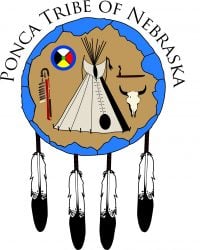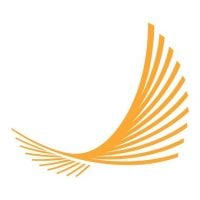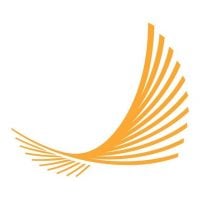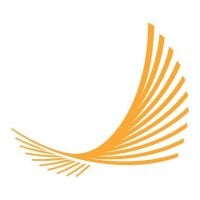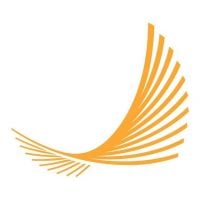Ponca Tribe of Nebraska - Behavioral Health
Drug Rehab Center in Sioux City, Iowa
Ponca Tribe of Nebraska - Behavioral Health in Sioux City, Iowa provides comprehensive care for individuals struggling with substance abuse and addiction, including assessments, customized treatment plans, a range of therapies, support systems, evidence-based practices, and health and wellness services.
About Ponca Tribe of Nebraska - Behavioral Health in Iowa
Ponca Tribe of Nebraska - Behavioral Health in Sioux City, Iowa provides comprehensive care for individuals and families struggling with substance abuse and addiction. It is staffed by experienced professionals, who offer comprehensive assessments and customized treatment plans that effectively meet the needs of the community. The team at Ponca Tribe of Nebraska - Behavioral Health works with clients to provide a range of therapies, including individual and group counseling, educational sessions, and social activities. They also offer a variety of support systems, such as family therapy, peer counseling, and help with basic needs.
At Ponca Tribe of Nebraska - Behavioral Health, they understand that addiction is a complex problem and recognize the need for integrated care. They offer a multi-disciplinary approach to treatment that incorporates evidence-based practices, such as cognitive-behavioral therapy and motivational interviewing. They also provide relapse prevention education, community outreach programs, and a wide range of health and wellness services to help individuals achieve lasting recovery.
The team at Ponca Tribe of Nebraska - Behavioral Health is committed to providing the highest quality of care and is accredited by The Joint Commission, the largest accrediting organization for healthcare organizations in the United States. They are also licensed by the Iowa Department of Human Services and are part of the National Council for Behavioral Health, a national organization that recognizes quality addiction treatment providers. In addition, Ponca Tribe of Nebraska - Behavioral Health is recognized as an exemplary treatment program by the National Institute on Drug Abuse and the Substance Abuse and Mental Health Services Administration.
Genders
Ages
Modality
Additional
Accreditations
State License
SAMHSA
Conditions and Issues Treated
Opioid addiction has become a significant health problem in the United States. When a person’s life becomes unmanageable because of an opioid addiction, treatment can help them get sober. Treatment includes medical care and counseling.
“With so many people struggling with opioid addiction, we need more care and attention for those who want to quit. Opioid addicts often take opioids when they experience a painful injury – that’s how the cycle starts! When someone begins taking their medication differently than prescribed or takes an excessive amount of drugs, it means they’re hooked on drugs and in danger of overdosing.
The most successful way to beat this is through detoxing from these types treatments at Ponca Tribe of Nebraska - Behavioral Health in . Most facilities start by using medical support during the process while providing counseling services; rehabilitation comes later on after treatment has been completed successfully.
Levels of Care Offered
This center offers a variety of custom treatment tailored to individual recovery. Currently available are Aftercare Support, Drug Rehab, Outpatient, with additional therapies available as listed below.
Outpatient programs at Ponca Tribe of Nebraska - Behavioral Health, the Sioux City resident can live with their family while continuing with their job or studies. Treatment includes educating the patient on drug abuse, medications, and counseling sessions at the individual or group level. Outpatient treatment plans cover diagnosis, detoxification, management, and counseling. They are a popular option for those who have graduated from inpatient facilities.
Without aftercare support, addicts can easily relapse back into addiction. It is crucial to integrate the addict back into society. Aftercare support should take place after outpatient treatment has ended.
There are a few different types of aftercare support that patients can seek after completing an inpatient treatment program:
- 12 Step Self-help groups (AA, NA)
- Therapeutic communities,
- Long-term, structured sober living arrangements
- Halfway houses (residential treatment centers)
Many different support groups exist for addicts to seek help after treatment. Some are more effective than others, depending on the person’s addiction, background, and other factors.
Therapies & Programs
Individual therapy is a form of counseling where you meet with a trained professional one-on-one. Meeting with a therapist in this setting allows for a personal and trusting relationship to be built. This allows the patient to open up about sensitive or private issues they may not feel comfortable discussing in a group. Individual therapy helps identify the root causes of your addiction, which can help prevent relapse.
Group therapy sessions are another common addiction recovery service. These group sessions typically involve six to 12 addicts who meet regularly with a trained professional for support and guidance.
During these sessions, the group shares their experiences with one another and provides feedback that can help each member avoid relapse or overcome specific obstacles they are facing in their recovery process. With this type of support and guidance, addicts can feel like they are part of a community that understands their struggles and will help them get through the hard times.
Many people struggling with drug addiction have experienced some form of trauma in their lives. It is crucial that these individuals seek out professional help; otherwise, their drug abuse and addiction will likely continue.
Therapists and counselors at drug treatment centers employ several treatment programs to help people struggling with drug addiction, including trauma therapy. Trauma therapy helps people dealing with addiction by allowing them to confront the traumas of their past and move past them.
It is important to note that trauma therapy should not be confused with PTSD (post-traumatic stress disorder). Rather, it is used to treat the effects of trauma, which are often at the root of addiction.
Cognitive Behavioral Therapy (CBT) focuses on the underlying thoughts and behaviors that caused the problem of addiction in the first place and may cause a relapse. Negative feelings are common in drug abuse disorders, but they can lead to co-occurring disorders if not recognized. CBT involves strategies that help to change the behavior pattern by restructuring negative thoughts into positive ones. It helps to remove these feelings, and it provides long-term benefits. Also, CBT promotes self-awareness and self-control. It can be administered as a monotherapy or as part of combination therapy.
CBT can improve the patient’s mood, reduce drug cravings and boost success rates on treatment plans. Regular practice can help individuals handle negative attitudes, thoughts, and feelings without turning to drugs or alcohol. The core belief of Cognitive Behavioral Therapy (CBT) is that one’s moods, behaviors, and actions are all connected. Individuals can improve their quality of life using CBT. It helps addicts understand the patterns of thought and feelings that cause them to use drugs or alcohol and develop a healthy response.
This type of therapy can help addicts get in touch with their emotions without feeling overwhelmed by them. It also allows the addict to develop strategies for coping with negative feelings that might trigger cravings or lead to relapse.
During these sessions, addicts will learn how to recognize and manage their cravings while developing an action plan for dealing with stress and other triggers. Combining the coping strategies learned in these sessions with ongoing therapy can help addicts lead a stable and healthy lifestyle that is free from addiction.
These types of therapy sessions provide several benefits to people dealing with addiction. By providing a safe environment for addicts to discuss their feelings, therapists can identify the issues that trigger cravings and work with addicts to develop strategies for avoiding relapse.
Additional Details
Specifics, location, and helpful extra information.
Sioux City, Iowa 51103 Phone Number(712) 258-0500 Meta DetailsUpdated November 25, 2023
Staff Verified
Ponca Tribe of Nebraska - Behavioral Health Patient Reviews
There are no reviews yet. Be the first one to write one.
Sioux City, Iowa Addiction Information
Iowa ranks 2nd lowest in the nation for illicit drug use, but 12% of its residents are still using these drugs every single year. Methamphetamines account for more than 90% of all drug-related prison admissions in Iowa. Alcohol is the most widely abused substance in the state, with 23% of residents admitting to heavy drinking.
The drug addiction problem in Sioux City, Iowa, is pretty bad. Around 5.9% of Sioux City residents reported using illicit drugs. Additionally, around 15.4% of residents reported binge drinking. 2,000 admissions to drug and alcohol treatment facilities were reported in the city in 2016. There are various treatment methods available in Sioux City, including medication-assisted treatment, talk therapy, inpatient treatment, and outpatient treatment. and 12-step programs.
Treatment in Nearby Cities
- Forest City, IA (150.1 mi.)
- Vinton, IA (225.7 mi.)
- Dubuque, IA (292.9 mi.)
- Rockwell City, IA (90.9 mi.)
- Albia, IA (211.5 mi.)
Centers near Ponca Tribe of Nebraska - Behavioral Health
The facility name, logo and brand are the property and registered trademarks of Ponca Tribe of Nebraska - Behavioral Health, and are being used for identification and informational purposes only. Use of these names, logos and brands shall not imply endorsement. RehabNow.org is not affiliated with or sponsored by Ponca Tribe of Nebraska - Behavioral Health.
